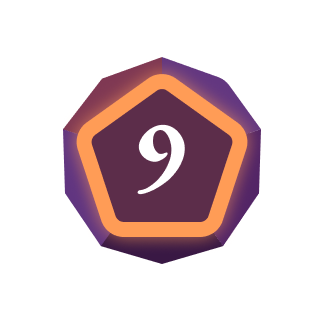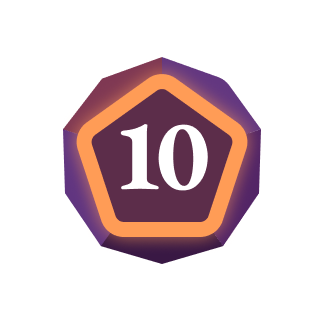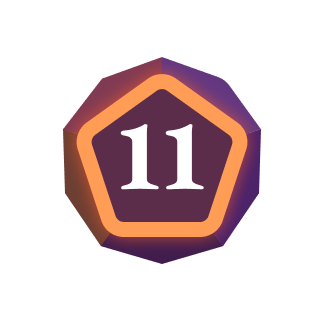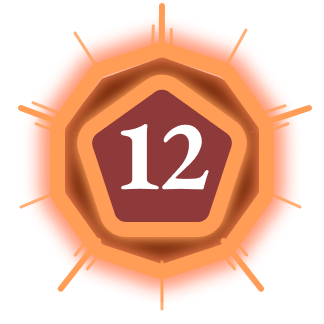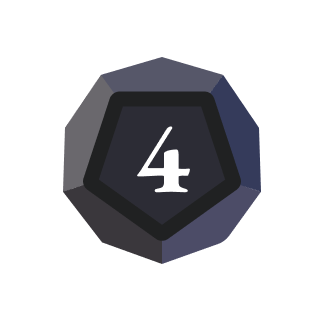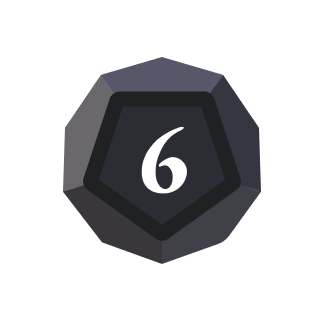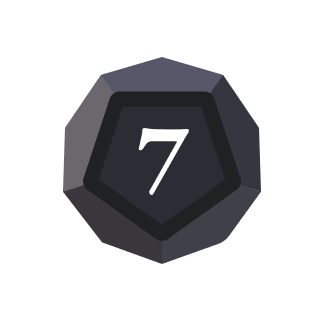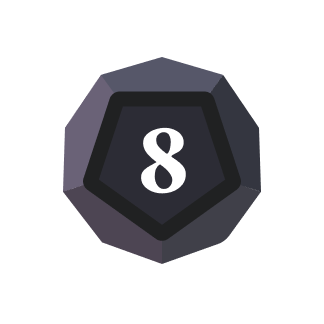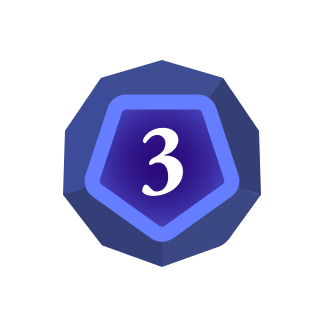Dice Rolls
Most things in Allies of Majesty are decided by the rolling of dice. These dice represent various factors at play in the situation that is being rolled for.
Kinds of Rolls
There are three kinds of rolls: Strikes, Checks, and Interactions.
- Strike rolls are used for attacking enemies.
- Check rolls are used when testing Basic Attributes or Resisting special effects.
- Interaction rolls are used when trying to Perceive or Influence others.
All rolls in Allies of Majesty are made by rolling 7D12 (seven twelve-sided dice) and then one character making Adjustments to that roll. The two most basic types of rolls are Strike Rolls and various Check Rolls.
Regardless of the type of roll, the results are read the in the same way.
Positive Results
Neutral Results
Negative Results
-
9-12 is a Positive result for the one making the roll
-
4-8 is a Neutral result for the one making the roll
-
1-3 is a Negative result for the one making the roll
The terms used for these results will vary based on the type of roll. For instance, in a Strike Roll, they are referred to as Hits, Misses, and Stops, while in a Resist Check, they are called Passes, Neutrals, and Fails.
Positive and Negative results cancel each other out. The final result of a roll is identified by the number of uncanceled positive or negative results.
While only one person handles the dice, the rolls account for the efforts of all characters involved. To illustrate, Stops (negative) in a Strike Roll indicate the Defender partially blocking or deflecting the Strike. Meanwhile, Misses could signify either the attack being partially flawed or the Defender evading adeptly. Hits are ways the Striker struck skillfully. Each die’s result serves as a distinct piece of the larger puzzle, painting a picture of the unfolding scenario.
Results at the extremes of 12 and 1 have additional special effects:
Epic Results
- each 12 is an Epic positive result and produces an additional positive result
- each 1 is an Epic negative result and cancels the extra positive result provided by a 12 (A 1's only special effect is canceling the 12's special effect. Strike Rolls are an exception to this.)
The Natural roll is the roll before any Adjustments are made to the dice. A natural 12 or natural 1 means that the die was rolled showing that face and was not changed to show that number.
Epic Rolls
- If the natural roll contains two or more uncanceled 12s (not canceled by a 1), the roll is considered an Epic positive roll. Natural 12s may not be adjusted down in an Epic roll.
- If the natural roll contains two or more uncanceled 1s (not canceled by a 12), the roll is considered an Epic negative roll. Natural 1s may not be Adjusted up in an Epic Failure.
Some factors will make the roll more or less likely to succeed. These are represented through Adjustments, Boon, and Bane.
Adjustments
When making any roll, one or more factors will be considered to determine a number of Adjustments that can be made to change the results. An Adjustment involves changing the number on one die to be 1 higher or 1 lower. If there are multiple Adjustments to be applied, they can be spread out among different dice and/or one die can be changed multiple times.
The number of Adjustments made depends on factors specific to each roll. Strike Rolls and Check Rolls will calculate a number that reflects the advantage (or lack thereof) of the character rolling the dice. That number will produce a number of Adjustments:
| a number of at least: | gives this many Adjustments: |
| 1 | 1 |
| 3 | 2 |
| 6 | 3 |
| 10 | 4 |
| 15 | 5 |
| 21 | 6 |
| +7 more | +1 more |
In order to resolved quickly, Interaction Rolls deal directly with opposing Adjustments with no translation needed.
Opposing Adjustments cancel each other out so that only one person makes Adjustments to the roll. An exception to this is when a character uses Inspiration or Obstruction Tokens, which are usually used after other Adjustments are made.
Boon and Bane
Boon is an advantage that can be gained through various means, such as a special blessing or good roleplaying. Bane is similar to Boon, but is a disadvantage. While some effects specifically cause Boon and Bane, they can also be applied by the Host at any time. Both involve rolling a number of additional dice notated as Boon:# or Bane:#. Simultaneous Boon and Bane cancel each other so that in the end there should be either Boon or Bane applied, not both.
When applying Boon, roll the appropriate number of extra (visually distinct) dice, then remove that many of lowest results rolled, treating them as if they were never part of the natural roll. Boon dice cannot replace 1's. Conversely, for Bane, remove that many of the highest results. Bane dice cannot replace 12's.
Herald is about to make a Might Check. Boon:2 and Bane:1 are both being applied to the roll. After equal amounts are canceled, only Boon:1 is applied. Herald rolls 8 dice instead of 7 and removed a 2, which was the lowest result. That die is treated in all respects as if it were never part of the natural roll.
Kinds of Rolls
You can find more information on each type of roll by reading their specific pages:
Strikes
Checks
Interactions
Perception Interactions
Social Interactions
These three categories combine the rolls that are most similar in how they are resolved. Thinking of rolls in these three categories can help players and Hosts more quickly understand what is expected.
Strikes? I'm going to just be looking for any uncanceled Hits (positive results) to cause damage. There may be some side effects even if all Hits are canceled.
Checks? I'm going to compare some Basic Attribute of my character to an opposing factor and I'm trying to get 3 Passes (positive results). If there is damage involved, 1 or 2 successes will reduce that damage, but a bad roll will increase it.
Interactions? My Perception or Social Attribute will be compared to anything opposing and the result is directly a number of Adjustments, no translation needed. I can have varying degrees of results.
Of course, the Host can call for any kind of roll desired to fit the need of the moment. Rolls serve the game, not the other way around.
